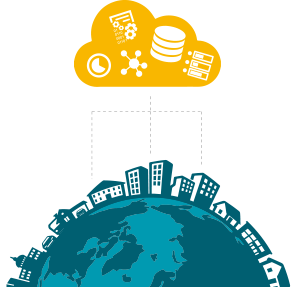Big data and data mining put a strain on both the right to privacy and data protection, but also other fundamental rights including freedom of expression and non-discrimination.
This is because with the large amounts of data that is processed for data mining and the aggregation and analysis of huge volumes of diversely sourced information or big data, the individual risks being lost and defined only by data and algorithms.
Big data, along with machine learning and artificial intelligence, is therefore a long-term strategic concern not only for data protection and privacy regulators like the EDPS, but for other enforcement agencies in the areas of competition and consumer protection.
In light of this, the EDPS proposed the establishment of a Digital Clearinghouse to bring together agencies from the areas of competition, consumer and data protection willing to share information and discuss how best to enforce rules in the interests of the individual.
With our Opinions, workshops and also our proposal for a Digital Clearinghouse, the EDPS has kick-started a worldwide debate on the implications of big data and the need for reflection by legislators and regulators.
In addition to the documents below, you can also read about Big Data in our Reference Library.
On 14 March 2017 the European Parliament adopted a resolution on 'fundamental rights implications of big data: privacy, data protection, non-discrimination, security and law-enforcement' which included a call for "closer cooperation and coherence between different regulators” and endorsed “the establishment and further development of the Digital Clearinghouse as a voluntary network of enforcement bodies can contribute to enhancing their work and their respective enforcement activities and can help deepen the synergies and the safeguarding of the rights and interests of individuals".
The 2017 International Conference of Privacy and Data Protection Commissioners also endorsed the Clearinghouse in its resolution to calling for greater cooperation between data protection and consumer authorities.
All regulators in the digital space, based in the EU or around the world, are invited to take part in discussions.
The Digital Clearinghouse met for the first time in Brussels on 29 May 2017. Digital regulators discussions were informed by presentations from Monique Goyens, Bruce Schneier, Paul-Olivier Dehaye, Inge Graef, Tristan Harris and Alexandre de Streel. The statement from first meeting of the Digital Clearinghouse is available here.
The statement from second meeting of the Digital Clearinghouse is available here. The meeting on 27 November 2017 focused on the four areas of common concern identified in the first meeting, namely fake news and voter manipulation, the emergence of attention markets and opacity of algorithms which determine how personal data are collected and used. Further updates will be posted here.
The third meeting of the Digital Clearinghouse took place on 21 June 2018. The statement from the third meeting is available here.
The fourth meeting of the Digital Clearinghouse took place on 10 December 2018. The statement from the fourth meeting is available here.
From 2019, the Digital Clearinghouse is jointly hosted by the Research Centre in Information, Law and Society (CRIDS) at the University of Namur, the Tilburg Institute for Law, Technology, and Society (TILT) at Tilburg University, and the European Policy Centre (EPC) in Brussels.
Regulators met for the fifth meeting on 5 June 2019. The network released a statement at the end of the meeting, available here.
The sixth meeting of the network took place on 19 November 2019. The statement adopted at the end of the meeting by the regulators is available here.
The seventh meeting of the network took place on 10 June 2020. The statement adopted at the end of the meeting is available here.

